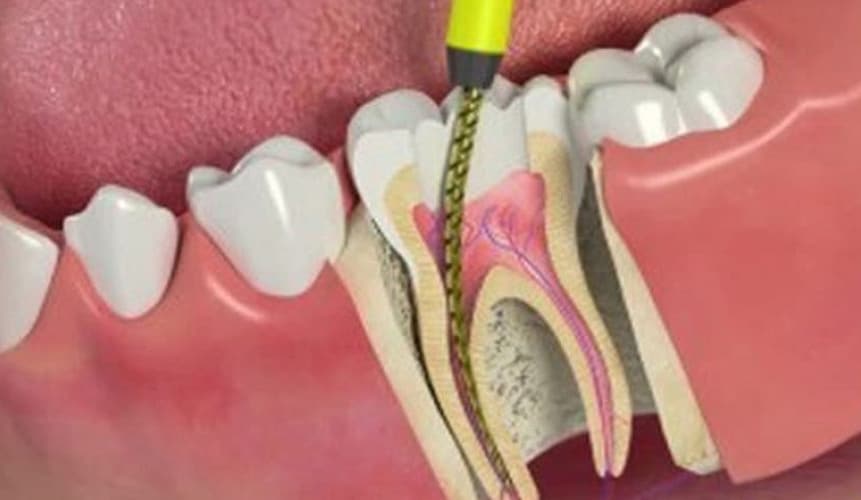How Have Root Canals Improved
Root canal treatments, once feared and misunderstood, have undergone significant advancements, making them more efficient, comfortable, and reliable. Explore the journey of improvement in root canal procedures and understand the key factors that have contributed to their positive transformation.
The evolution of root canal treatments showcases a commitment to improving patient outcomes, minimizing discomfort, and achieving long-term success. As technology and techniques continue to advance, root canals are likely to become even more patient-friendly and effective in the years to come. If you’re considering a root canal or have questions about the procedure, consult with your dentist to explore the modern options available for your specific needs.
There are few things more dreaded by Australians than a root canal. The pain, discomfort, and irritation associated with having a root canal are legendary. The fear of having to have one causes people to put off otherwise minor tooth ailments until they become serious – and then a more serious intervention is required than what was needed in the first place.
The funny part of all of this is that root canals stopped being a long, painful and intense procedure a long time ago, as technology, medication and techniques have naturally improved with time. We can’t even begin to count the number of patients who have left our practices after a root canal who didn’t need anything stronger than ibuprofen for the pain. But yet, the fear remains. We’re confident that if you were to ask most dentists in Brisbane, Perth or Melbourne if root canals are an easy and minor procedure, they would say “yes”.
To see just how stress-free a root canal can be, one only has to look at how far endodontic treatment has come…
Early Root Canal Treatment
What most people associate with having a root canal actually stems from an outdated view of the treatment. Like most medical procedures, advances constantly occur as experts learn from experience and results. What you would have experienced even 10 years ago in a dentist’s chair is completely different from what you can expect visiting one today.
The earliest root canal treatments focused on simply draining the infected tooth to relieve pain and pressure. As time passed, the procedure integrated covering the drained tooth with protective coverings. When the use of the x-ray became widespread, the focus shifted to saving the tooth instead of extracting it.
The use of breakable stainless steel files shifted to the more flexible nickel titanium, and motors used have increased in torque, increasing the strength, speed, and control of dental instruments. Microscopes have improved allowing for a crystal-clear view of the extent and margins of the damaged tooth. New medical rinses and filling combat the return of infection and the anaesthetic options available to patients has increased in type and scope, so there is a pain relief option for everyone.
1. Technological Innovations:
- Modern root canals benefit from advanced technologies such as digital imaging, 3D imaging, and rotary instruments. These technologies enhance precision and allow for a more accurate diagnosis and treatment.
2. Improved Anesthesia Techniques:
- The use of advanced anesthesia techniques ensures that patients experience minimal discomfort during root canal procedures. Local anesthesia is administered precisely, targeting the affected area for pain-free treatment.
3. Enhanced Diagnostic Tools:
- Diagnostic tools like electronic apex locators and laser fluorescence help dentists pinpoint the exact location of the root canal system. This improves accuracy in cleaning and shaping the root canals.
4. Minimally Invasive Approaches:
- Modern root canal procedures emphasize minimally invasive techniques. This means preserving more natural tooth structure while effectively treating the root canal system. This approach promotes faster recovery and reduces post-treatment discomfort.
5. Magnification and Illumination:
- The use of dental loupes and powerful illumination sources allows dentists to visualize the root canal system with greater clarity. This enhanced visibility contributes to more precise and thorough cleaning and shaping.
6. Biocompatible Materials:
- The materials used in root canal treatment have evolved to be more biocompatible and durable. Gutta-percha, a commonly used filling material, ensures a tight seal, preventing reinfection and promoting long-term success.
7. Laser Technology:
- Laser technology has found its way into root canal procedures, offering benefits such as disinfection, removal of bacteria, and precise tissue removal. Lasers enhance the effectiveness of root canal treatments.
8. Endodontic Microscopes:
- Endodontic microscopes provide detailed magnification, enabling dentists to visualize intricate details within the root canal system. This level of precision ensures thorough cleaning and reduces the likelihood of complications.
9. Improved Understanding of Anatomy:
- Advances in dental education and research have deepened our understanding of root canal anatomy. This knowledge allows for more comprehensive and successful treatments, addressing intricacies in tooth morphology.
10. Patient Comfort and Education: – A focus on patient comfort and education has transformed the root canal experience. Dentists prioritize clear communication, helping patients understand the procedure and alleviating anxieties associated with root canals.
11. Efficient and Time-Saving Protocols: – Streamlined and efficient protocols have reduced the time required for root canal treatments. This benefits both dentists and patients, making the process more convenient and accessible.
12. Continuous Professional Development: – Dentists continually update their skills and knowledge through ongoing education. This commitment to professional development ensures that they are well-versed in the latest techniques and technologies for root canal procedures.
Frequently Asked Questions (FAQs) about the Evolution of Root Canal Procedures:
How have advancements in technology improved root canal treatments?
Technological innovations, such as digital imaging and rotary instruments, enhance precision, accuracy in diagnosis, and overall efficiency in root canal procedures.
Are root canal procedures less painful now?
Yes, improved anesthesia techniques ensure minimal discomfort during root canal treatments, making the experience more tolerable for patients.
How do minimally invasive approaches benefit root canal treatments?
Minimally invasive techniques preserve more natural tooth structure, leading to faster recovery and reduced post-treatment discomfort for patients.
What role do diagnostic tools play in modern root canal procedures?
Tools like electronic apex locators and laser fluorescence help dentists precisely locate and treat the root canal system, improving accuracy and effectiveness.
Are biocompatible materials used in modern root canal treatments?
Yes, materials like gutta-percha are biocompatible and durable, ensuring a tight seal to prevent reinfection and promote long-term success.
How does laser technology contribute to root canal procedures?
Laser technology aids in disinfection, bacteria removal, and precise tissue removal, enhancing the overall effectiveness of root canal treatments.
What benefits do endodontic microscopes offer in root canal procedures?
Endodontic microscopes provide detailed magnification, allowing dentists to visualize intricate details within the root canal system, leading to thorough cleaning and reduced complications.
Has there been a change in patient comfort during root canal procedures?
Yes, a focus on patient comfort and education has transformed the root canal experience. Clear communication helps patients understand the procedure and alleviate anxieties.
How have efficient and time-saving protocols impacted root canal treatments?
Streamlined protocols have reduced the time required for root canal treatments, benefiting both dentists and patients by making the process more convenient.
Why is continuous professional development important in root canal procedures?
Dentists engage in ongoing education to stay updated on the latest techniques and technologies, ensuring they provide the most effective and patient-friendly root canal treatments.
Are root canal procedures more successful now with improved understanding of anatomy?
Yes, an improved understanding of root canal anatomy contributes to more comprehensive and successful treatments, addressing intricacies in tooth morphology.
Can advancements in root canal treatments prevent future complications?
Advancements aim to reduce the likelihood of complications by improving precision, accuracy, and overall effectiveness in root canal procedures.
These days, a root canal can be quick and painless – and much of the pain you will feel will come from delaying it. So if you have a toothache or pain, remember that you have nothing to be afraid of and book your root canal appointment today.











